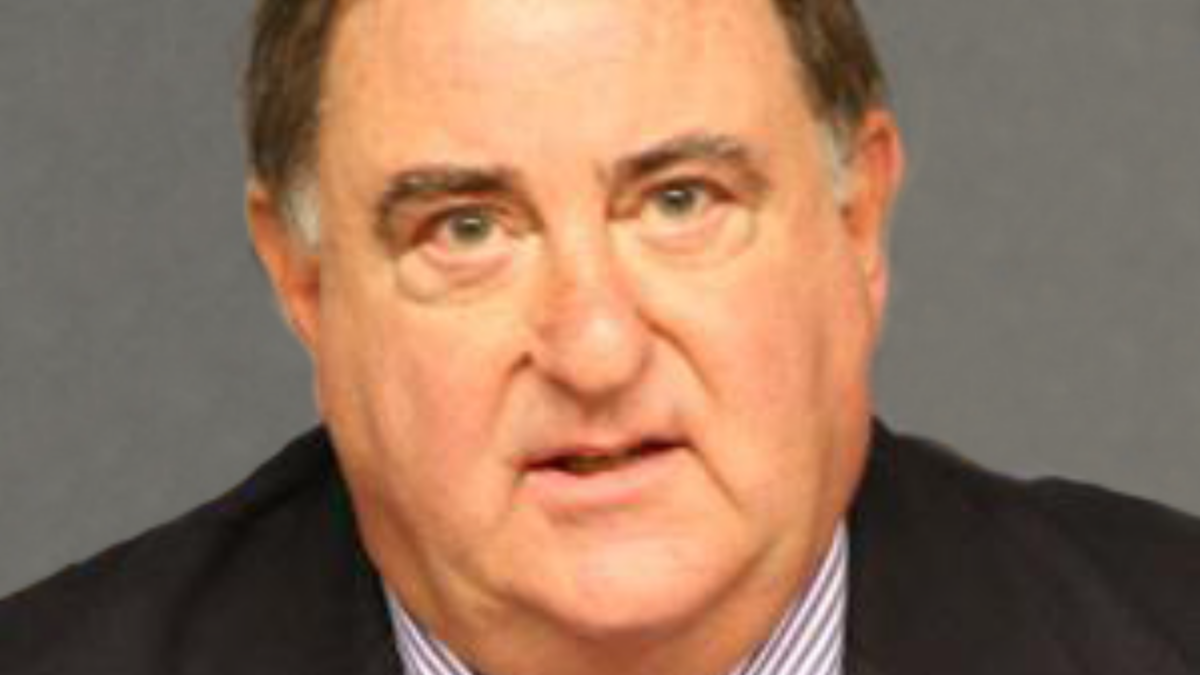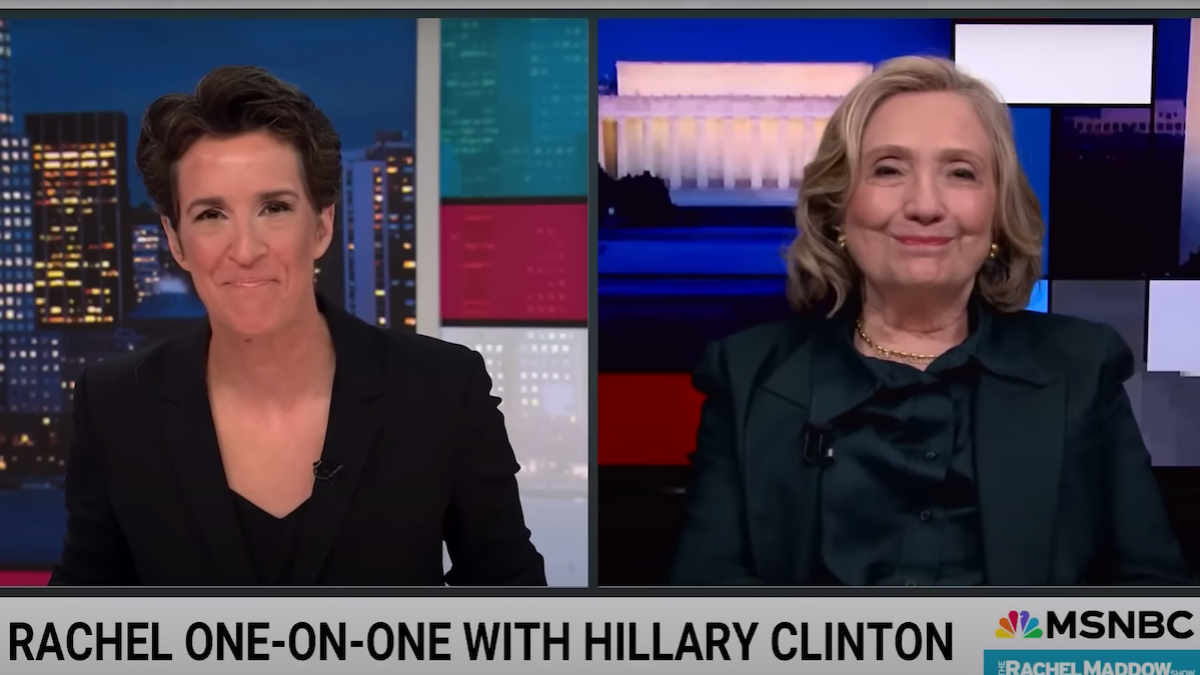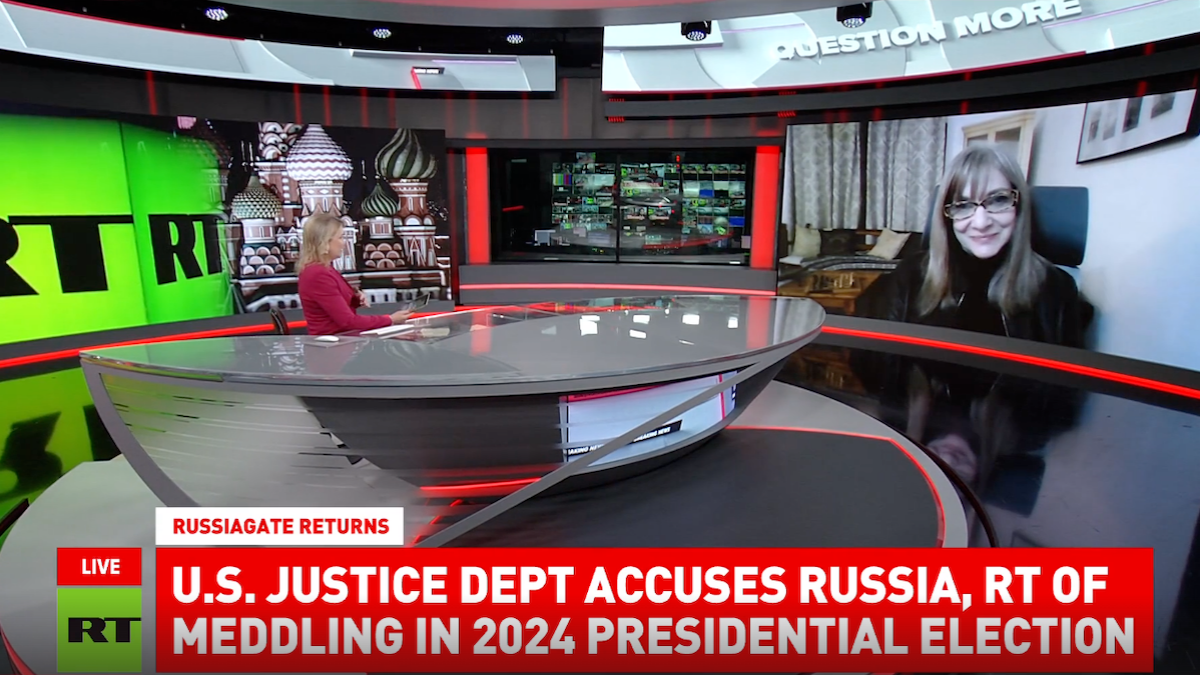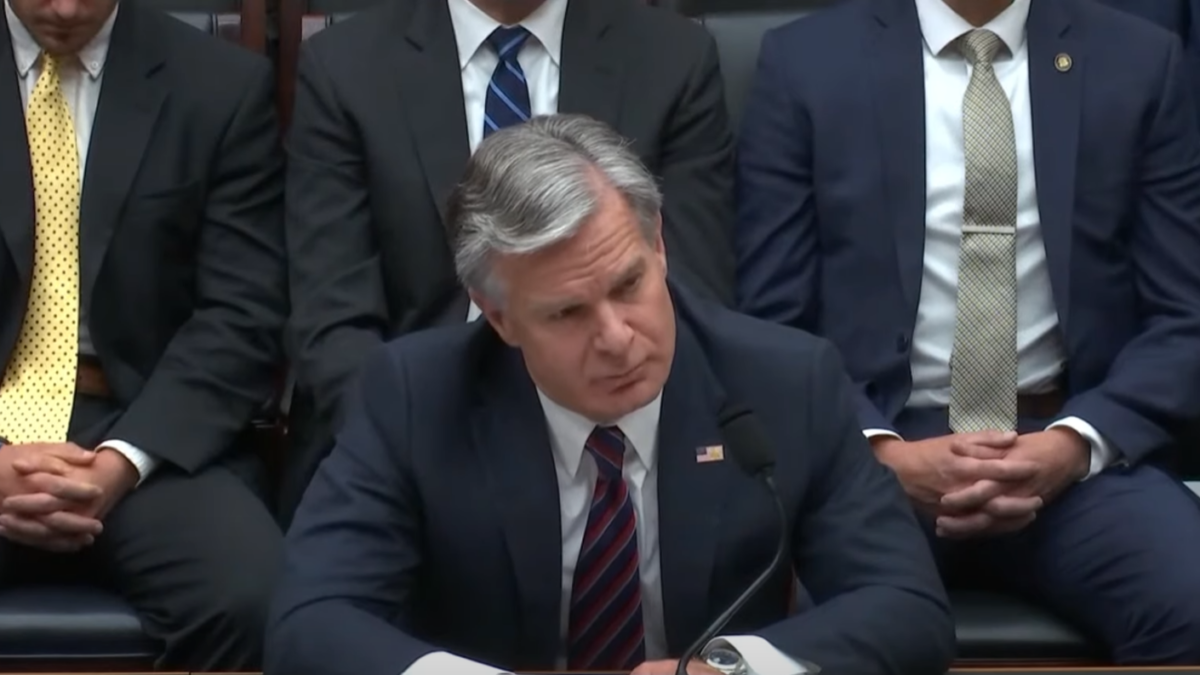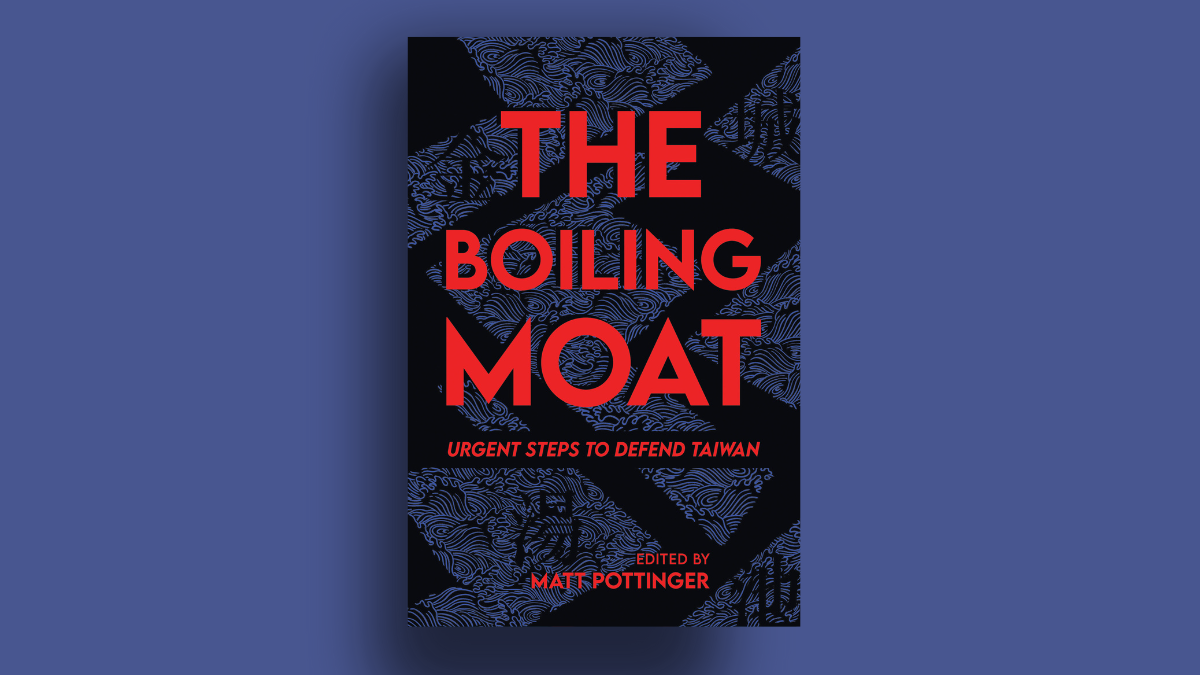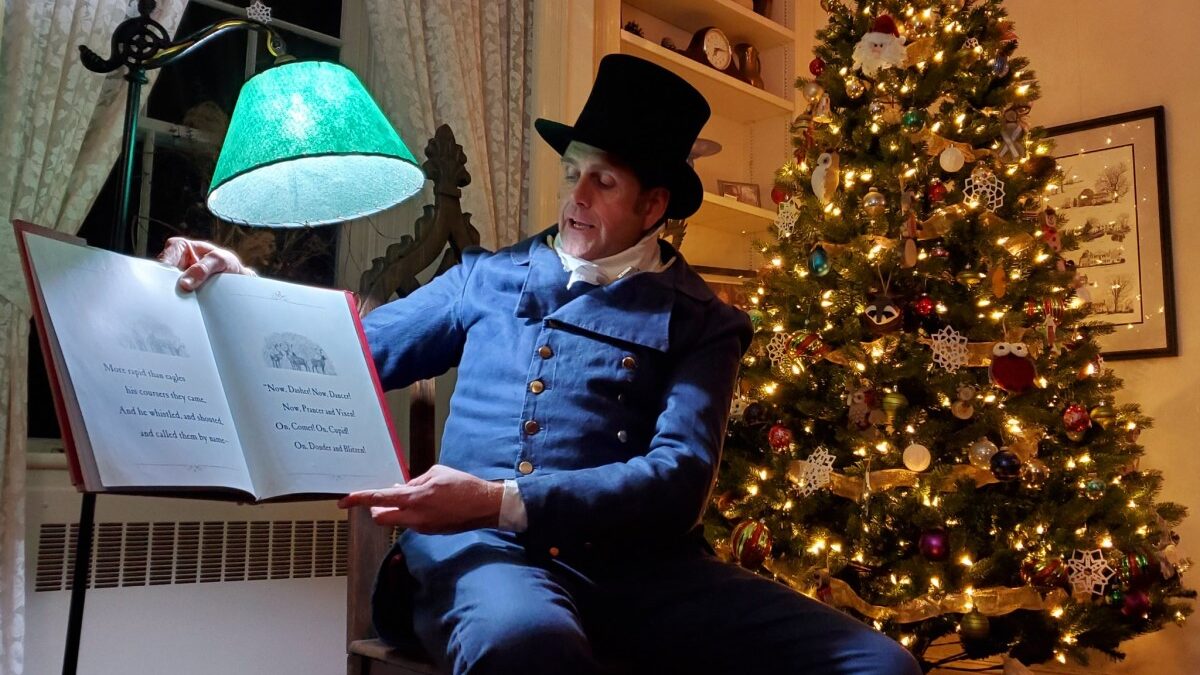Hiding behind his lawyers and hoping to avoid questioning about his role in SpyGate, former confidential human source Stefan Halper implies in his most recent court filing that the Russia collusion story peddled during the 2016 election and after was “substantially truth.”
Later this morning, a federal judge in Virginia will consider Halper’s latest attempt to toss the lawsuit Svetlana Lokhova filed against him in December of 2020, which claims that the former confidential human source defamed her and alleges tortiously interference with a book contract she had.
This lawsuit represents the second case Lokhova filed against Halper, with her earlier defamation case against Halper and numerous media outlets dismissed because she waited too long to sue the majority of the defendants; the two timely claims failed because one isolated article was not defamatory and the final defendant was not responsible for a non-employee’s tweets.
After the district court dismissed her first lawsuit, Lokhova filed a second complaint in December 2020 against only Halper. In her second case, branded Lokhova II, the Russian-born British citizen, author, and academic again alleged defamation and tortious interference with contract claims.
Specifically, Lokhova’s second lawsuit alleged that “in March 2020, when Halper learned of the book” Lokhova was writing about Halper, “he directed his counsel, Terry Reed, to contact Post Hill Press and Simon & Schuster solely for the purposes of ‘quash[ing] publication and cancel[ling] the Book Contract.’” Reed then allegedly “contacted [Simon & Schuster] and [Post Hill Press] and falsely accused [them] of defaming Halper in the marketing materials.”
The complaint further alleged that through the letters, Halper “defamed and disparaged” Lokhova to the publishers and falsely accused her of “knowingly publishing” statements that were “false.” Additionally, it alleged that “Halper escalated the threats and intimidation to [Simon & Schuster’s] parent company, CBS Corporation.” The complaint in Lokhova II concluded that Halper’s accusations were untrue and that “[t]he sole purpose of Halper’s actions was to interfere with [Lokhova’s] Book Contract and induce [Post Hill Press] to terminate the Contract,” which it ultimately did after facing irresistible pressure from Simon & Schuster.
Halper responded to Lokhova’s second lawsuit by filing a motion for sanctions, arguing her new lawsuit was “frivolous” under Virginia law because, according to Halper, he had an “absolute litigation privilege” to send letters to the publishers of Lokhova’s upcoming book. Judge Leonie Brinkema, who had dismissed the complaint in Lokhova I, agreed, sanctioned both Lokhova and her attorney, and dismissed her second lawsuit against Halper. Lokhova appealed that dismissal, and the Fourth Circuit Court of Appeals reversed both the award of sanctions and the dismissal of her lawsuit.
In reversing Judge Brinkema’s dismissal of Lokhova’s second lawsuit and the court’s award of sanctions, the Fourth Circuit stressed that Lokhova’s second case relied on facts that occurred subsequent to the dismissal of the earlier litigation. The federal appellate court then held that Brinkema had abused her discretion in finding Lokhova II “frivolous and without merit.” In reaching this decision, the Fourth Circuit first noted that it “is not disputed that the complaint adequately stated claims under Virginia law for defamation and tortious interference with contract.”
The appellate court then addressed Halper’s claim that the letters he sent to Simon & Schuster and Post Hill Press “were protected by the absolute litigation privilege.” Initially, the Fourth Circuit held that that privilege, even if applicable to a defamation claim, did not bar Lokhova’s “tortious interference with contract” claim. The court then concluded that whether the absolute privilege barred Lokhova’s defamation claim rested on several factors, yet unknown, such as why Halper sent the letters. Because “Halper’s intent in sending the letters is ultimately a question of fact” and one that can only be resolved “after discovery and the development of a fuller record,” the Fourth Circuit also reversed the dismissal of Lokhova’s second lawsuit against Halper, remanding the case to the lower court.
After Lokhova’s victory on appeal in Lokhova II, and notwithstanding the Fourth Circuit’s analysis, Halper filed a Motion to Dismiss, framing the appellate court’s decision in Lokhova II as limited to the question of sanctions. Halper then argued that as a matter of law, Lokhova’s defamation and tortious interference with contract claims should be dismissed.
Soon after, D.C. lawyer Leslie McAdoo Gordon filed an appearance in the case and filed an amended complaint against Halper. The amended complaint presented the same claims but provided a more complete summary of the factual basis of Lokhova’s claims. Halper pushed forward nonetheless with his Motion to Dismiss.
In his Motion to Dismiss, Halper presents numerous frivolous arguments, including that Lokhova’s second lawsuit merely regurgitates the allegations she made in Lokhova I that were rejected by the appellate court in the original appeal. The Fourth Circuit Court of Appeals rejected that spin, however, in the second appeal brought by Lokhova, when the appellate court ruled that Lokhova’s second lawsuit concerned new conduct—conduct that had occurred after the lower court had dismissed her first defamation and tortious interference claims.
Halper also argues at length that Lokhova failed to properly allege the requisite elements to state defamation and tortious interference with contract claims. Again, the Fourth Circuit’s decision appears to dispose of that argument, with the court having said that it “is not disputed that the complaint adequately stated claims under Virginia law for defamation and tortious interference with contract.”
The trial court may believe, however, that because the Fourth Circuit’s decision focused on the issue of sanctions and Halper’s claim of “absolute litigation privilege,” whether Lokhova’s allegations were sufficient to state defamation and tortious interference with contract claims remains to be decided. But even if Judge Brinkema takes that tack, she should nonetheless deny Halper’s Motion to Dismiss because it is impossible at this stage of the litigation to know precisely what Halper said about Lokhova to succeed in having Post Hill Press cancel her book contract.
While in his response to Lokhova’s complaint, Halper filed with the court copies of the letters he sent to Post Hill Press and Simon & Schuster, Lokhova also alleged that Halper made threats to CBS Corporation, the parent company of Simon & Schuster. What Halper said to CBS Corporation, and what else, beyond the letters, his attorneys said to Post Hill Press and Simon & Schuster is unknown at this time. Under these circumstances, and given the other allegations in the complaint, Judge Brinkema should deny Halper’s Motion to Dismiss and allow the case to proceed to discovery.
“Should,” however, is the operative word.
To date, Halper appears to have succeeded in sidestepping any inquiry into his role in the SpyGate scandal, which included him serving as a confidential human source to question three individuals connected to the Trump campaign, namely Carter Page, George Papadopoulos, and Sam Clovis. Halper also allegedly spread the rumor of an intrigue between Michael Flynn and Lokhova, which formed the basis of Lokhova’s original lawsuit.
On October 5, 2020, the Senate Homeland Security Committee subpoenaed Halper to testify before the Senate “on October 14, 2020 at 5:00 p.m. at its committee room,” and to “produce all records related to the Federal Bureau of Investigation’s Crossfire Hurricane investigation; the Department of Justice Inspector General’s review of that investigation; and the ‘unmasking’ of U.S. persons or entities affiliated, formally or informally, with the Trump campaign, Trump transition, or Trump administration.” Halper never showed and to this date appears to have avoided any questioning by Congress.
Yet in arguing that the court should dismiss Lokhova’s lawsuit against him, Halper pretends the Inspector General report refuted the claims Lokhova made about him in the book he succeeded in having canceled, “The Spider: Stefan A. Halper and the Dark Web of a Coup,” implying that the story of Russia collusion peddled during the 2016 election and after was “substantially truth.” But the Inspector General also never questioned Halper, and the IG report did not address Halper’s alleged misconduct toward Lokhova.
The question, now, is whether Judge Brinkema will allow Lokhova’s case to proceed and Halper to finally be subjected to questioning about his role in SpyGate—public questioning, that is, as it may well be that Special Counsel John Durham has already hauled Halper in front of a grand jury. If not, then Halper isn’t the only one who owes Americans some answers.
